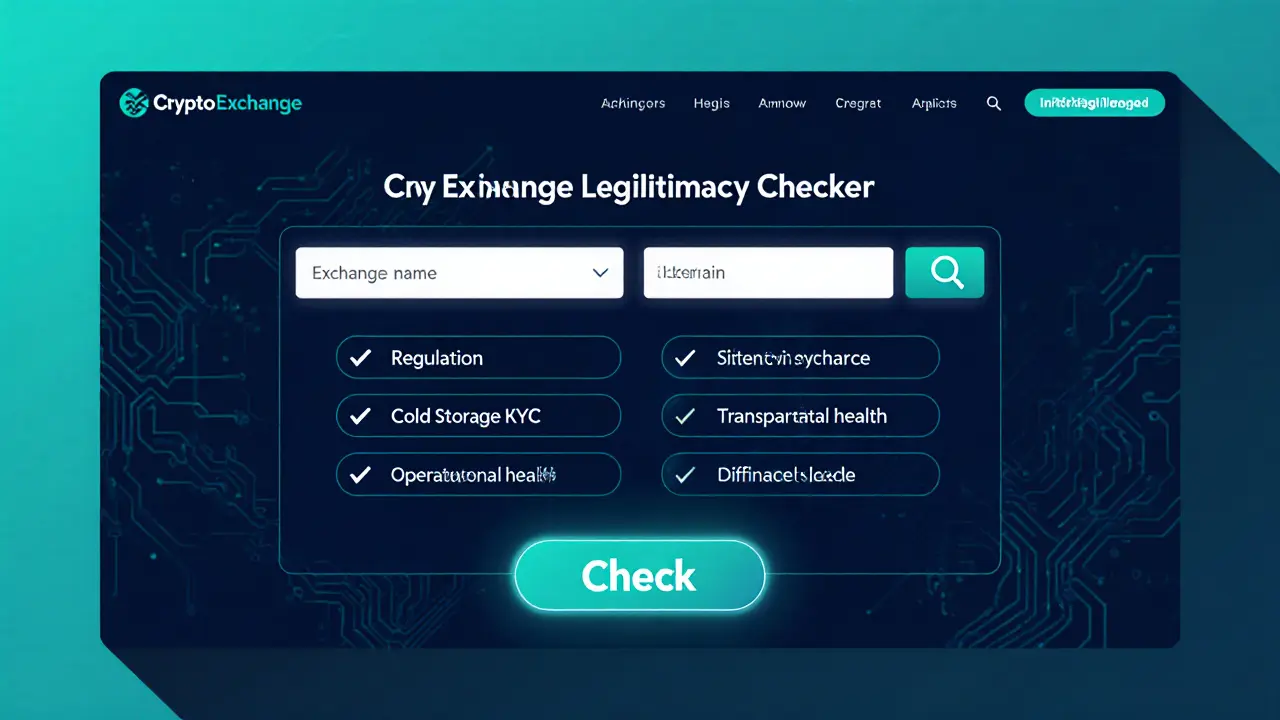Cryptocurrency Exchange Safety: What You Need to Know
When talking about cryptocurrency exchange safety, the practice of protecting your funds and data while using crypto trading platforms. Also known as exchange security, it combines legal compliance, technical safeguards, and user habits to keep assets out of the hands of bad actors.
One of the biggest pillars of cryptocurrency exchange safety is crypto licensing, official permission from a financial regulator that lets an exchange operate legally. A licensed exchange must meet capital requirements, undergo regular audits, and implement anti‑money‑laundering (AML) procedures. This legal layer reduces the chance of a sudden shutdown and gives users a clear recourse if something goes wrong.
Closely tied to licensing is exchange regulation, the set of rules that govern how an exchange handles deposits, withdrawals, and data privacy. Regulation forces platforms to adopt robust KYC (Know Your Customer) checks, secure storage for private keys, and transparent reporting of fees. When an exchange follows strong regulation, you get clearer insight into where your money sits and how it’s protected.
Key Risks and How to Counter Them
Even with licensing and regulation, users still face phishing scams, fraudulent messages that trick you into revealing login credentials or private keys. These attacks often masquerade as official emails from the exchange, using familiar logos and tone. A simple checklist—verify the sender’s address, never click unknown links, and always log in through the official website—can stop most attempts before they reach your wallet.
Another practical safety layer comes from thorough exchange reviews. Independent assessments compare fees, security features, and user experience across platforms. Reviews highlight red flags like hidden withdrawal costs, limited insurance coverage, or poor customer support, helping you choose a platform that aligns with your risk tolerance.
Putting these pieces together creates a safety net: crypto licensing provides legal backing, exchange regulation enforces operational standards, phishing awareness protects your credentials, and reviews give a reality check on the service. Together they form a comprehensive shield around your crypto activity.
For traders who live on the edge, sandbox programs add an experimental playground. A sandbox lets a new project test its product under regulator supervision without full market exposure. This controlled environment often brings higher transparency and early security testing, which spills over into the larger exchange ecosystem.
In practice, you should start by confirming an exchange’s licensing status—look for MSB registration in the U.S., BitLicense, or equivalent permits in your jurisdiction. Next, read the exchange’s regulation summary to see how they handle AML, KYC, and data encryption. Finally, run a quick phishing test: can you spot a fake login page? If you answer yes to all three, you’re on solid ground.
Below you’ll find a curated list of articles that dive deeper into each of these topics. From detailed licensing guides to step‑by‑step phishing protection checklists, the posts will give you the tools to trade confidently and keep your crypto safe.

Bitroom Crypto Exchange Review: Is It Legit or a Scam?
Sep 26, 2025, Posted by Ronan Caverly
A thorough review of Bitroom crypto exchange reveals no licensing, missing security details, and multiple red flags, leading to a clear recommendation to avoid the platform.
MORE
xCrypt Exchange Review: Is It a Legit Crypto Platform or a Scam?
Mar 10, 2025, Posted by Ronan Caverly
An in‑depth review reveals that xCrypt (xcrypto.global) is a flagged fraudulent crypto platform. Learn why regulators label it a scam, spot red flags, and discover safe exchange alternatives.
MORE
BITEJIU Crypto Exchange Review: Is It Legit or a Scam?
Jan 2, 2025, Posted by Ronan Caverly
A thorough review of BITEJIU crypto exchange reveals no licensing, audits, or transparent fees, flagging it as high‑risk. Compare it with reputable platforms and learn safety steps.
MORESEARCH HERE
Categories
TAGS
- decentralized exchange
- crypto exchange
- crypto exchange review
- crypto coin
- crypto airdrop
- cryptocurrency
- CoinMarketCap airdrop
- cryptocurrency trading
- smart contracts
- tokenomics
- DeFi
- cryptocurrency exchange safety
- crypto airdrop 2025
- cryptocurrency airdrop
- cryptocurrency exchange
- MiCA
- crypto airdrop guide
- blockchain token distribution
- crypto token
- Portugal crypto tax
